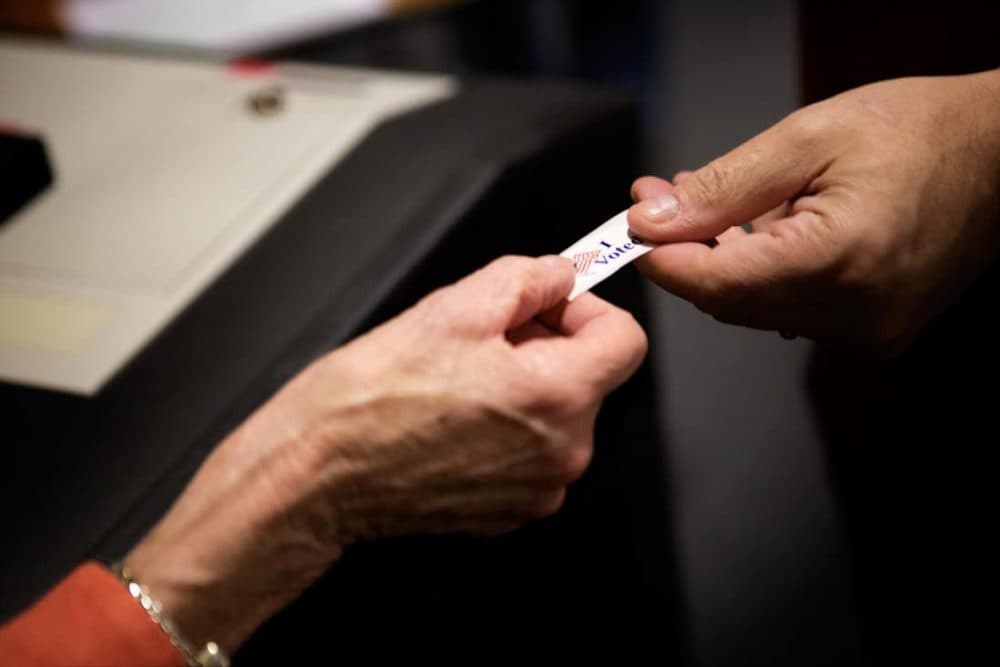Advertisement
Analysis: Why The GOP Presidential Candidates Shouldn't Ignore Mass.

As we enter the holiday season, the political universe is drawing an ever-tighter circle of focus around Iowa and New Hampshire.
But what happens after Granite State voters go to the polls on Feb. 9?
Even if current Republican front-runner Donald Trump wins both first-in-the-nation contests, he will not be able to amass a very large lead in the delegate count. That’s because GOP rules decree that all states voting before March 15 must be allocated proportionally, rather than the winner of a state taking them all.
After Iowa and New Hampshire come South Carolina and Nevada, and then, on March 1, a dozen states, including Massachusetts, go to the polls. The Bay State could be a plum prize, especially for more moderate candidates from the “establishment” wing of the party looking to blunt Trump’s momentum.
You might think, then, that Massachusetts would be a natural stop for candidates stumping all over our neighbor to the north. Greater Boston even shares a media market with New Hampshire, meaning Massachusetts voters will be collateral damage in the coming TV ad war. Indeed, most of the ads Boston voters will see are actually targeted at southern New Hampshire.
But most GOP candidates are completely ignoring Massachusetts. In the past three months, the 14 remaining Republican candidates for president have made 275 campaign stops in New Hampshire. In Massachusetts, they have made five, and two of those were made by Trump.
The lack of attention is not because the Massachusetts race is sewn up for Trump. Apart from one old robo-poll and a phone poll with a very small sample size, we don’t yet have a good sense of voter preferences in the GOP primary here. While those polls have shown Trump up, history suggests voters may take a more centrist path. Since 1988, the GOP primary has been carried by Mitt Romney, John McCain, Bob Dole or one of the two Bushes.
Advertisement

To be sure, terms like "moderate" and "establishment" are fluid and depend on the dynamics of the race. This year, Trump draws support from independents and moderates, but is nowhere close to an establishment candidate. In 2000, the self-styled maverick McCain was seen as more moderate than the establishment-backed George W. Bush. Independent voters accounted for McCain’s victories in Massachusetts and Vermont that year. Romney’s victory over McCain in 2008 may have had more to do with the former’s Massachusetts roots than ideology. In 2012, Romney won here again, amidst a far more conservative field. But despite Romney’s tack to the right during that primary cycle, either he or McCain would rank among the more centrist figures in this year’s contest.
The Massachusetts primary electorate in 2008 was the most liberal of any state where exit polls were done. That is likely to be the case this year as well, in part because very few actual Republicans vote in the Republican primary here. Less than 11 percent of all Massachusetts voters are registered as Republicans, a new low for a party whose numbers have been declining for a long time.

With so few registered Republicans, the majority of voters in the GOP primary are likely to be independents, or “unenrolled” voters. Unenrolleds comprise the majority of all voters in Massachusetts, and they can vote in either the Democratic or Republican primary simply by requesting a ballot at the polls on Election Day. In each of the last two GOP presidential primaries, just 37 percent of the voters were actually registered Republicans, according to the Massachusetts state voter file. The rest were unenrolled voters who picked up Republican ballot.
This year appears set to play out similarly. The contest on the Democratic side seems to grow less competitive by the day, offering little to entice large swaths of independent voters. Even if it does heat up, that may not be enough to change the party composition on the Republican side. In 2008, there were competitive races on both sides, and the ratio of Republicans to unenrolled voters barely budged.
It is ironic that a state with little Republican establishment to speak of could present an opportunity for the GOP establishment to blunt Trump’s momentum. But Massachusetts, with a relatively large pot of delegates and ideologically moderate electorate, could be key for a candidate like John Kasich, Marco Rubio, Chris Christie or Jeb Bush, assuming they are still in the race.
The fact that delegates from early states will be awarded proportionally prevents a front-runner from gaining too much steam and gives those trailing incentive to stay in the race.
But to capitalize on that opening, campaigns have a strategy for what happens after Iowa and New Hampshire. Yes, the first two states matter, and a strong showing in one or both has proven essential in past years.
But it is likely the campaign will carry on well after these two are over. And that means there are votes to be won by making a trip across the border from New Hampshire into Massachusetts.
Steve Koczela is president of the MassINC Polling Group and a regular contributor to WBUR Politicker. He tweets at @skoczela.